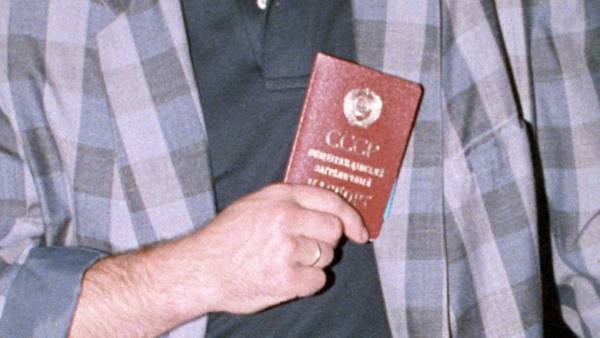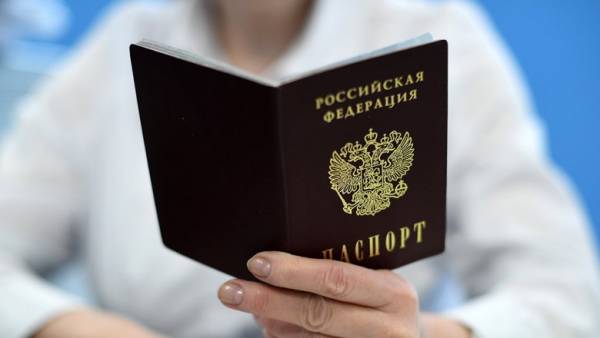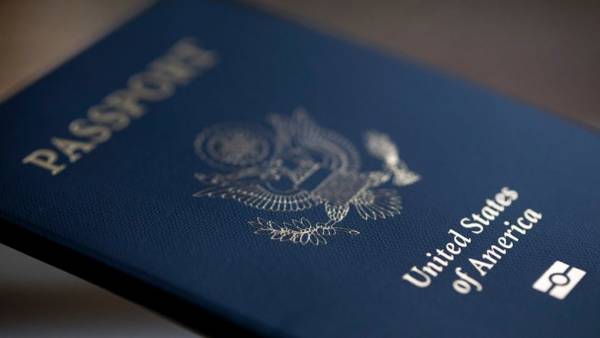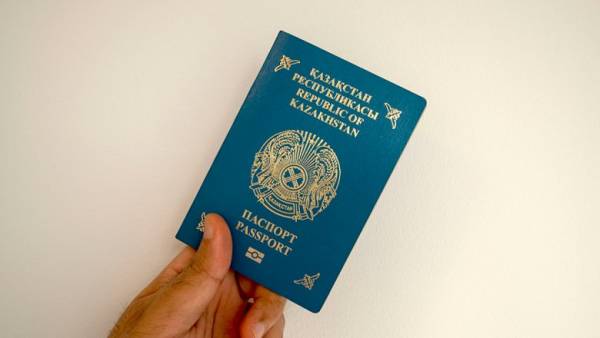
Soviet Union
In the & nbsp; Soviet Union, deprivation of citizenship was allowed in an & nbsp; exceptional case by the Presidium of the & nbsp; Council of the USSR, “ if a person has committed acts discrediting the high rank of a citizen of the USSR and & nbsp; damaging the prestige or state security of the USSR. '' In & nbsp; 1966 – 1988, 21 people were deprived of their citizenship, including writers Alexander Solzhenitsyn, Vladimir Voinovich, musician Mstislav Rostropovich, director Yuri Lyubimov. In & nbsp; 1990, by decree of the President of the USSR Mikhail Gorbachev, citizenship was returned to them.

Russia
< p>In & nbsp; 1991, in the & nbsp; law “ On & nbsp; citizenship of the Russian Federation '' the principle of & nbsp; that & nbsp; a citizen & nbsp; RF not & nbsp; can be deprived of citizenship was enshrined. However, those who & nbsp; received citizenship not by & nbsp; birth, may lose citizenship if they received it illegally or were convicted of & nbsp; extremism, terrorism. So, for example, in & nbsp; June 2020, citizenship of the Russian Federation was lost by a native of Ukraine, Alexey Novikov, who was convicted of & nbsp; attempting to join the & nbsp; “ Islamic State '' (prohibited in & nbsp; RF). In & nbsp; July 2017, the Ministry of Internal Affairs, by & nbsp; by a court decision, revoked the citizenship of media manager Demyan Kudryavtsev, as it was “ established that the legal fact of knowingly reporting false information about & nbsp; admission to & nbsp; Russian citizenship '' was established.
A person born in Russia cannot be deprived of citizenship. < img src = "/wp-content/uploads/2021/12/6a2da5742a1e261908fa51ec6eb143f0.jpg" />
Europe
In Europe, the grounds for & nbsp; loss of citizenship are divided into & nbsp; two main categories: voluntary renunciation of & nbsp; citizenship at the & nbsp; initiative of the citizen and & nbsp; its automatic loss under & nbsp; law or deprivation at & nbsp; initiative of the state. According to the European Convention on & nbsp; Citizenship, signed by 29 European countries, it is possible to lose citizenship only if the person & nbsp; as a result does not & nbsp; become a person without & nbsp; citizenship. Voluntary renunciation of & nbsp; citizenship is valid in almost all European countries.
The main reasons for automatic or forced loss of citizenship:
- obtaining citizenship of another country. On this basis, citizenship is lost, for example, in Austria, Germany, Ireland, Spain, Latvia, Lithuania, the Netherlands, Norway, Slovakia, Estonia. In most cases, citizenship is lost automatically; in some cases, the state can deprive citizenship at its own discretion (Ireland and & nbsp; Latvia).
- permanent residence abroad is the basis for & nbsp; loss of citizenship in & nbsp; Belgium, & nbsp; Cyprus, & nbsp; Denmark, Finland, France, Iceland, Ireland, the Netherlands, Norway, Spain, Sweden, Switzerland, & nbsp; Malta.
- voluntary service in a & nbsp; foreign military or & nbsp; public service. In the first case, citizenship is deprived, for example, in Austria, Germany, Spain, the Netherlands, Latvia, Lithuania, Moldova, Romania, France, Estonia. In the & nbsp; case of a foreign civil service, citizenship of Denmark, Greece, Spain, Italy, Latvia, Lithuania, Slovenia, Turkey, France may be lost.
- behavior that causes serious damage to the interests of the state (work for & nbsp; foreign intelligence, terrorism, participation in & nbsp; illegal armed formations and & nbsp; others). On this basis, Belgium, Bulgaria, Great Britain, Denmark, Ireland, Spain, Cyprus, Lithuania, Malta, Moldova, Romania, Slovenia, France, Switzerland, Estonia are deprived of their citizenship. So, for example, citizenship was deprived of British natives terrorist Jack Letts and & nbsp; escaped to & nbsp; Islamic State (prohibited in & nbsp; RF. & mdash; “ Kommersant '') schoolgirl Shamila Begum.
- cancellation of maternity, paternity or adoption. & Nbsp; a number of countries (Belgium, Germany, Luxembourg, Moldova, the Netherlands, Norway, Finland, Switzerland) provide for the loss of citizenship in the & nbsp; case of adoption by a foreign citizen or cancellation of motherhood, paternity or adoption.
- loss of citizenship of the parents may result to & nbsp; loss of citizenship of minor children in & nbsp; 19 European countries (Austria, Belgium, Bulgaria, Germany, Greece, Denmark and & nbsp; others).
< li> fraudulent acquisition of citizenship leads to & nbsp; deprivation of citizenship in & nbsp; 30 European countries (this is the most common basis).

USA
In & nbsp; USA citizenship can be deprived if it is obtained illegally or by deception, a person participates in & nbsp; elections or serves in the & nbsp; armed forces of other countries, has committed high treason or other serious crime. Citizenship can also be revoked if a person becomes a member of the Communist Party, another totalitarian party or a terrorist organization within five years after naturalization. Forced revocation of citizenship is extremely rare.
There is also a voluntary renunciation of citizenship in the country. For example, British Prime Minister Boris Johnson voluntarily renounced his American citizenship in 2016 when he became British Foreign Secretary.
Russian businessman Oleg Tinkov in & nbsp; 2013 also renounced & nbsp; American citizenship for & nbsp; tax reasons. However, when & nbsp; leaving & nbsp; American citizenship, anyone with & nbsp; a fortune of more than $ 2 & nbsp; million is required to pay the & nbsp; exit tax & raquo; (exit tax) c & nbsp; the amount that he would & nbsp; would from & nbsp; a one-time sale of all his assets. Thus, Tinkov had to pay the US authorities $ 506 & nbsp; million in fines.

CIS
< p> In & nbsp; Belarus, a person can be deprived of citizenship for & nbsp; a number of reasons with & nbsp; presence of dual citizenship: terrorism, inciting ethnic hatred, treason to the state, riots. It is impossible to deprive Belarusians by birth.
In & nbsp; Azerbaijan can be deprived of citizenship for & nbsp; terrorist activities and & nbsp; the spread of hostile religious movements, the creation of armed religious groups.
In & nbsp; Kazakhstan can be deprived of citizenship for & nbsp; committing terrorist crimes and & nbsp; causing other grave harm to the vital interests of the country. The latter is understood as an encroachment on the & nbsp; territorial integrity of the country, undermining the constitutional system and & nbsp; others.